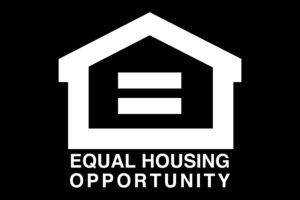Owning a home is a dream for many, but it’s essential to understand the risks and responsibilities that come with a mortgage. While diligent mortgage repayments are crucial, unexpected financial difficulties can sometimes lead to mortgage default. In this comprehensive guide, we will delve into the concept of mortgage default, its implications, and what homeowners need to know to navigate this challenging situation.
Defining Mortgage Default
Mortgage default occurs when a homeowner fails to make timely mortgage payments as agreed upon in the loan agreement. Typically, a mortgage is considered in default if the homeowner misses consecutive monthly payments or falls significantly behind on payments. Defaulting on a mortgage can have serious consequences, including the potential loss of the property through foreclosure.
Causes of Mortgage Default
There are several factors that can contribute to mortgage default. Understanding these causes can help homeowners identify potential risks and take proactive measures to prevent default. Some common causes of mortgage default include:
a. Financial Hardship: Unforeseen circumstances such as job loss, medical emergencies, or a sudden decrease in income can make it difficult for homeowners to meet their mortgage obligations.
b. Excessive Debt: Taking on too much debt, such as high credit card balances or personal loans, can strain a homeowner’s financial resources, making it challenging to keep up with mortgage payments.
c. Adjustable-Rate Mortgages (ARMs): Homeowners with adjustable-rate mortgages may face difficulties when interest rates rise, resulting in higher monthly payments that are difficult to manage.
d. Negative Equity: When the outstanding mortgage balance exceeds the market value of the property, homeowners may become discouraged and choose to default, especially if they are unable to sell or refinance the property.
e. Lack of Financial Literacy: In some cases, homeowners may not fully understand the terms and obligations of their mortgage, leading to financial mismanagement and potential default.
Implications of Mortgage Default
Defaulting on a mortgage can have severe consequences for homeowners, including:
a. Foreclosure: Mortgage default can ultimately lead to foreclosure, where the lender takes legal action to repossess the property. Foreclosure proceedings can result in the forced sale of the home to recover the outstanding loan balance.
b. Credit Score Impact: Mortgage default and subsequent foreclosure can significantly damage a homeowner’s credit score, making it challenging to secure future credit or obtain favorable interest rates.
c. Financial Loss: Homeowners may experience financial loss due to foreclosure costs, legal fees, and potential deficiency judgments, where the lender seeks to recover the remaining loan balance.
d. Difficulty Obtaining Future Financing: Defaulting on a mortgage can make it difficult to qualify for future home loans or other forms of credit, impacting homeownership prospects and overall financial stability.
Steps to Avoid Mortgage Default
While mortgage default can be a distressing situation, there are steps homeowners can take to avoid or mitigate the risks:
a. Open Communication with Lender: If you’re experiencing financial difficulties, contact your lender immediately. They may be able to provide temporary relief options such as loan modifications or forbearance agreements.
b. Budgeting and Financial Planning: Create a comprehensive budget that prioritizes mortgage payments and identifies areas where expenses can be reduced. Seek professional financial advice if necessary.
c. Explore Refinancing or Loan Modification: Depending on your financial circumstances, refinancing your mortgage or seeking a loan modification may be viable options to lower monthly payments and make them more manageable.
d. Seek Housing Counseling: HUD-approved housing counseling agencies can provide guidance and assistance to homeowners facing mortgage challenges. They can help explore options, negotiate with lenders, and provide financial education.
e. Sell the Property: If maintaining mortgage payments becomes increasingly unsustainable, selling the property may be a viable solution to avoid foreclosure. It allows homeowners to pay off the outstanding mortgage balance and potentially salvage their credit.
f. Seek Legal Advice: In complex cases or if foreclosure proceedings have already begun, consulting with a real estate attorney can provide valuable insights and legal representation to protect your rights and explore alternative solutions.
g. Financial Assistance Programs: Research local or government-sponsored programs designed to assist homeowners facing financial hardships. These programs may offer financial aid, loan restructuring, or other forms of assistance.
The Importance of Early Intervention
Early intervention is crucial when homeowners find themselves at risk of defaulting on their mortgage. Taking prompt action and seeking assistance can increase the chances of finding a viable solution and avoiding the severe consequences of foreclosure. Ignoring the issue or delaying action may limit the available options and make it more challenging to recover financially.
Educating Yourself on Mortgage Rights and Responsibilities
Homeowners should familiarize themselves with their mortgage rights and responsibilities from the outset. Understanding the terms of the mortgage agreement, including payment obligations, interest rates, and potential penalties, can help homeowners make informed decisions and avoid default.
Seeking Professional Guidance
Navigating the complexities of mortgage default requires expertise and guidance. Homeowners should consider seeking professional assistance, including:
a. Mortgage Counselors: HUD-approved housing counselors can provide valuable advice and support, helping homeowners explore options, negotiate with lenders, and understand the implications of default.
b. Real Estate Attorneys: Consulting with a real estate attorney can provide legal representation and ensure homeowners’ rights are protected during the default and foreclosure process.
c. Financial Advisors: Working with a financial advisor can help homeowners develop a comprehensive financial plan, manage debt, and prioritize mortgage payments to avoid default.
Rebuilding After Default
Recovering from mortgage default takes time and effort, but it is possible to rebuild your financial standing. Here are some steps to consider:
a. Rebuilding Credit: Take steps to repair your credit by paying bills on time, reducing debt, and practicing responsible financial habits.
b. Budgeting and Saving: Develop a realistic budget that allows you to manage your expenses, save for emergencies, and rebuild your financial stability.
c. Establishing a Positive Payment History: Consistently making timely payments on all financial obligations, including rent and utilities, can demonstrate responsible financial behavior to future lenders.
d. Building an Emergency Fund: Create a savings cushion to protect against future financial hardships and unexpected expenses.
e. Educating Yourself: Continue to expand your financial literacy by attending workshops, reading reputable resources, and seeking guidance from professionals.
In conclusion, understanding mortgage default and taking proactive measures to prevent it is crucial for homeowners. By being aware of the causes, implications, and steps to avoid default, homeowners can protect their homes, credit, and financial stability. Early intervention, seeking professional guidance, and maintaining open communication with lenders are key elements in navigating this challenging situation. Remember, with the right strategies and support, homeowners can overcome mortgage default and rebuild their financial well-being.



